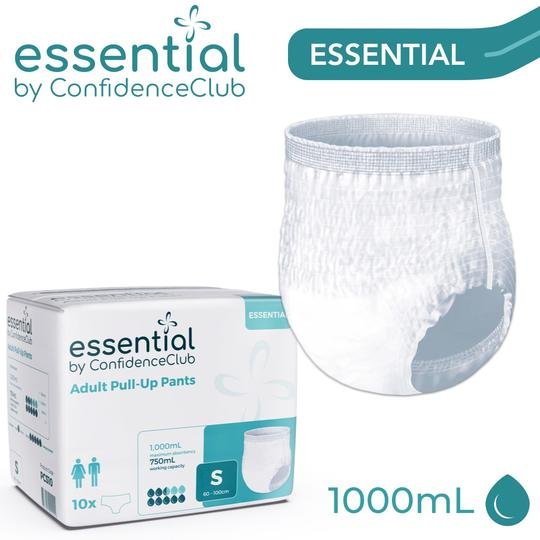How To Manage And Treat Leaks?
Urinary incontinence can be hard on people who are suffering from it. But there are many ways incontinent episodes can be decreased through treatment options and management strategies.

Urinary incontinence can be hard on people who are suffering from it. But there are many ways incontinent episodes can be decreased through treatment options and management strategies. The best management strategy can be to buy incontinence pants online. Incontinence pads and diapers can help you live a stress-free life without worrying about leakages.
Can Behavioural Changes Help Manage Incontinence?
Yes, simple behavioural changes can make incontinence management easier. Create a bathroom schedule for yourself or the incontinent family member so they can empty their bladder regularly, even when they do not have the urge to go.
You must also ensure the incontinent person has easy access to the washroom. Make sure that they have everything else they need to get to the washroom, such as a walker or a carer’s assistance.
Maintain a bladder and bowel diary for the patient and encourage them to use it to keep a track of their bathroom trips and incontinent episodes. This diary can be used to track their leaks and to determine a bathroom schedule.
Along with maintaining a diary, you must also encourage the patient to do pelvic floor exercises. You can explain the benefits of strengthening the pelvic floor muscles to make them agree to do these exercises. You must also purchase Incontinence Products for the patient so that they are able to stay dry and avoid embarrassing situations.
Make Dietary Changes
Apprise and explain to your loved ones to limit intake of foods or fluid that cause bladder irritation to possibly help with bladder control. Talk to them about good eating habits to make sure their diet and lifestyle support a healthy weight. Explain to them how extra pounds can place extra pressure on their bladder.
Let them know they must avoid the following foods and fluids that work as diuretics:
- Alcoholic and carbonated beverages
- Beverages containing caffeine such as tea, coffee, and aerated drinks
- Tomatoes
- Citrus fruits and juices
- Sugar, honey, and artificial sweeteners
- Chocolate
- Spicy food
Also, encourage the patient to increase the intake of high-fibre foods into their diet. As constipation can lead to incontinence. When you eat more fibre, it can be very helpful for improved bowel functions.
Oat bran, applesauce, and non-irritating juices of grape, cranberry, cherry, and apple are good sources of high fibre foods.
Medication
Speak to a medical practitioner to establish whether the medicines the patient is using are not triggering or aggravating incontinence. Medicines that contain certain sedatives, diuretics and narcotics are said to exacerbate incontinence. You must discuss with the doctor the possibility of adjusting their medication to reduce incontinence episodes.
Incontinence Protective Hygiene Products
Just like daily hygiene products such as toothpaste, deodorant, body wash, and so on Incontinence Products can be used on a daily basis to keep your loved one feeling clean, fresh, and comfortable around the clock. With home remedies and medication, the patient will work to improve incontinence, and simultaneously incontinence products can help them manage odour, moisture, and freshness in the event of a leakage.
Summing Up
An incontinence episode can be detrimental to the mental health of the sufferer. But as a carer or family member of an incontinent patient, you must make it seem like a normal incident. More than physical help they need mental support and encouragement. Be there for them and assure them that this medical condition is treatable.
Share
What's Your Reaction?
 Like
0
Like
0
 Dislike
0
Dislike
0
 Love
0
Love
0
 Funny
0
Funny
0
 Angry
0
Angry
0
 Sad
0
Sad
0
 Wow
0
Wow
0















